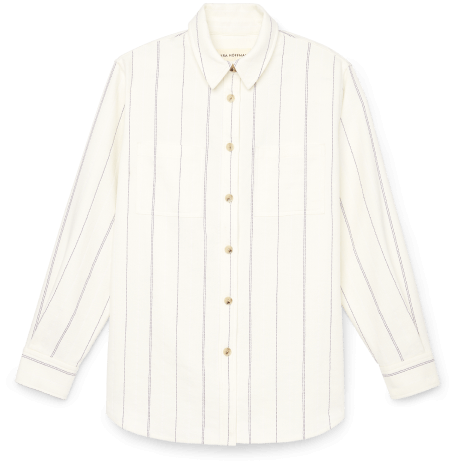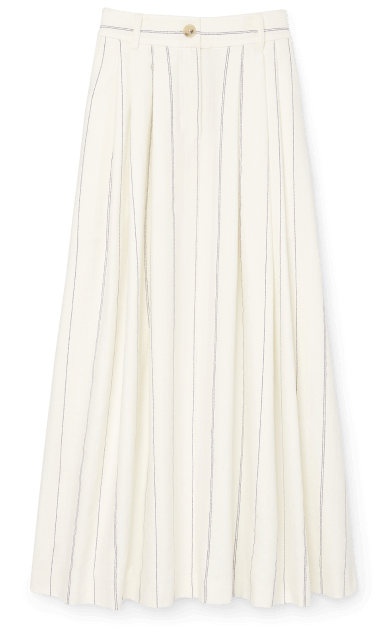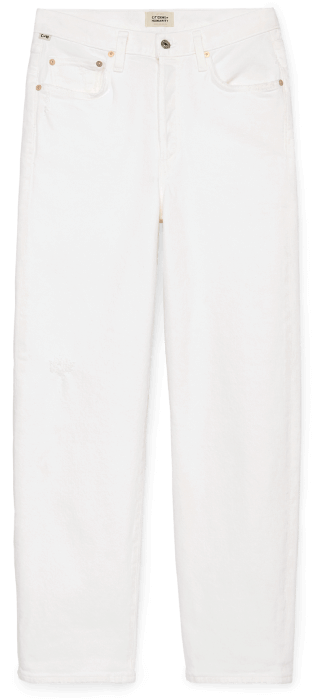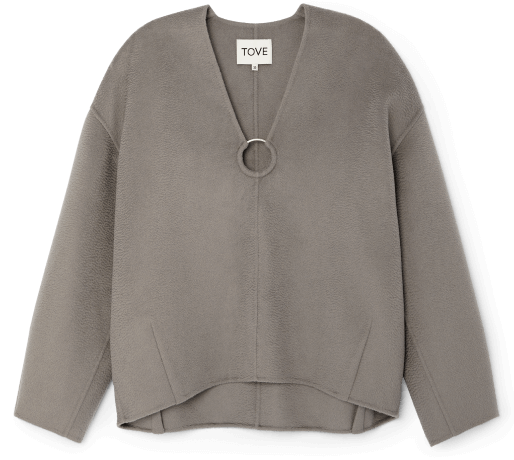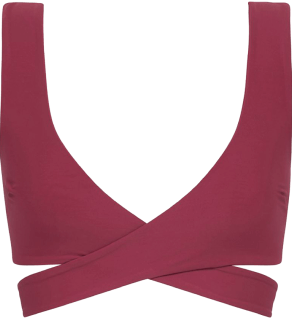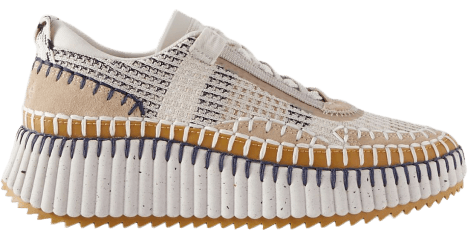
Photo courtesy of Jai Odell for Old Stone Trade
A Guide to Shopping More Mindfully
The most sustainable clothes are the ones you already own, but the reality is we live in a consumer-based culture
that wants us to buy…everything. Smartphones are the new billboards. Instagram ads are unnervingly on point. And
the tap-to-shop button is all too tempting. But that doesn’t mean we’re doomed. And luckily, being more
sustainable doesn’t have to look any one way.
For some people, it might simply mean shopping less. For others, it may be about investing in beautiful,
well-made items they’ll wear for years to come. And then there are the cold-cycle queens and hang-dry heroes
curbing their energy use one load of laundry at a time.
As for our part? We do our best to shine a light on the brands—new and known—that are committed to doing things
better. We try not to greenwash. We ship every goop.com order in curbside-recyclable boxes. We still have work to
do—but we’re committed to making progress, and we know that when it comes to our planet, we don’t have time to waste.
These are the brands we’re loving and the fabrics we’re buying, plus a quick and dirty guide to green lingo.
A GLOSSARY OF TERMS TO GET COMFORTABLE WITH
- B Corp certification is a designation that verifies a
company’s high standards of environmental and social performance, accountability, and transparency. - Carbon-neutral means that a product or process results in
net-zero greenhouse gas emissions. This can be achieved by purchasing carbon offsets or planting trees. - A circular economy is a system that is
regenerative by design. It encourages resources to be used for as long as possible and aims to recapture
consumer waste and manufacture it into new products. - GOTS
stands for Global Organic Textile Standard. It’s a rigorous certification for organic textiles that verifies
that every step in the textile supply chain—from raw material to finished product—meets a clearly
defined set of criteria.
- A living wage is what it sounds like: sufficient payment to
enable a worker (and their family) to afford a decent standard of living. - OEKO-TEX is an independent organization offering several
different types of certifications (for textiles, leathers, and more) and tools to support sustainable and
socially responsible production practices. The stringent criteria for each certification standard are
updated annually to reflect scientific advances and shifting regulatory requirements. - Regenerative agriculture is farming practices that protect
the long-term viability of the land, such as crop rotation, reduced tillage, and composting. - Traceability means knowing where and how every part of a
garment was made, from the buttons to the thread to the zipper.
8 Brands Making Moves
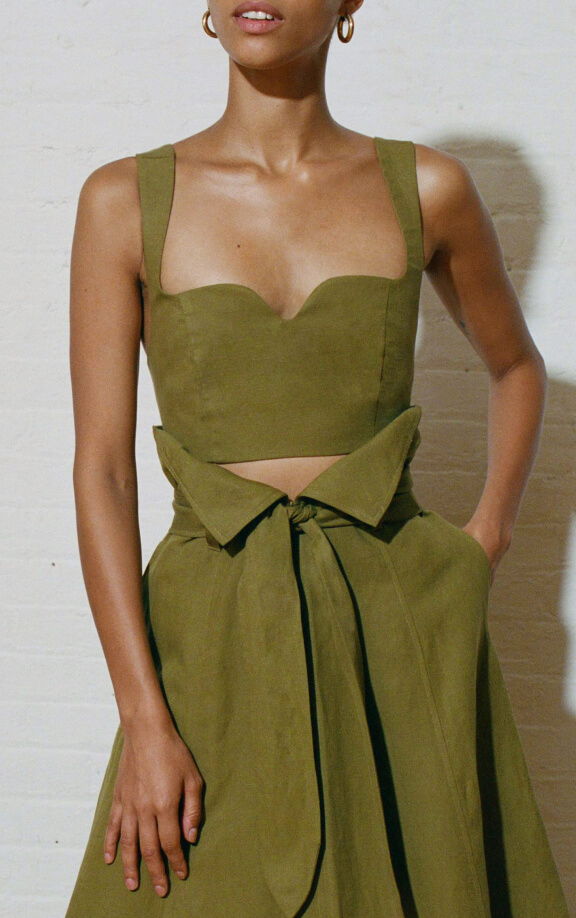
MARA HOFFMAN
Fifteen years after launching her eponymous label in 2000, Mara Hoffman committed to making sweeping changes
in the name of sustainability, proving it’s never too late to make a difference. Now the brand uses only
natural or recycled materials. It partners with 13 organizations working to support environmental progress. It
even created a marketplace to keep preloved Mara Hoffman pieces in circulation and out of landfills.
ON MODEL:
mara hoffman jini top, goop, $225;
mara
hoffman anna skirt, goop, $375;
OFF MODEL:
mara hoffman adele top, goop, $225;
mara hoffman tulay skirt, goop, $350
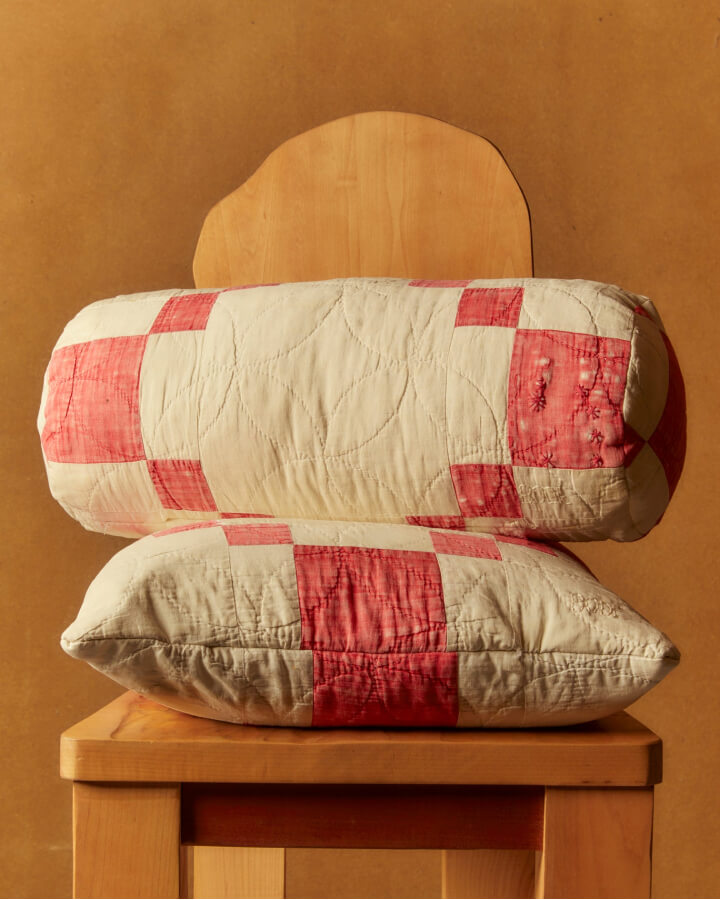
BODE
Shopping at the Bode flagship in NYC’s Chinatown is about as close to time travel as you can get without a
time machine. Every piece of clothing and home décor is cut from antique fabrics, Victorian quilts, grain
sacks, and bed linens replete with mystery and charm. Next door, time-honored clothes-making techniques like
appliqué and quilting are used to handcraft pieces that are entirely new—and one-of-a-kind.
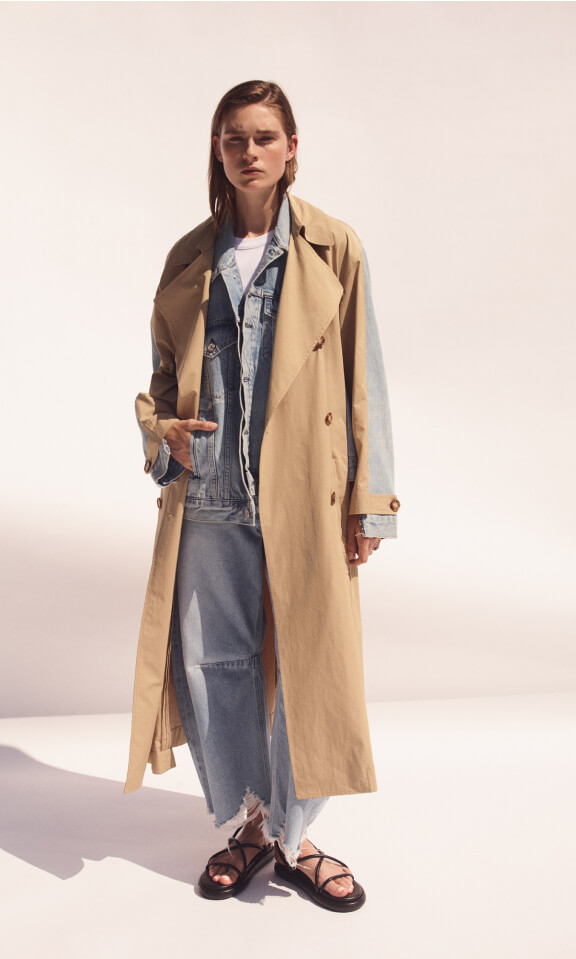
CITIZENS OF HUMANITY
If its sustainability report is any indication, Citizens of Humanity takes its work very seriously. Not only
does the brand use high-efficiency dye and wash machines in its LA- and Turkey-based manufacturing facilities
(which it owns—a rarity in the denim world), it also used vegetable dyes, natural enzymes, and improved laser
technology to lower its chemical load when creating its spring 2022 collections. And Citizens has plans to
build a water recycling system at its Turkish facility by the end of next year.
ON MODEL:
CITIZENS OF HUMANITY SPLICED TRENCH, Citizens of Humanity, $1,350;
CITIZENS OF HUMANITY HORSESHOE JEANS, Citizens of Humanity, $288;
CITIZENS OF HUMANITY georgina denim jacket, Citizens of Humanity, $448;
OFF MODEL:
CITIZENS OF HUMANITY Dylan Rolled Crop, goop, $228

TOVE
TOVE takes a geographic approach to sustainability. It’s recently moved production of its GOTS-certified
cotton pieces to Portugal, where the cotton mills are located. Silks—from which the bulk of the brand’s
dresses are made—are sourced locally from European mills. And the packaging used to ship the sculptural,
achingly romantic pieces to international warehouses and customers’ homes is either recycled or recyclable.
ON MODEL:
TOVE ELEN TOP, Tove, $367;
OFF MODEL:
TOVE maidi top, goop, $655

BONDI BORN
In addition to being a certified B Corp, BONDI BORN is a member of 1% for the Planet, meaning it contributes at
least 1 percent of its annual sales to environmental nonprofits. It also partners with One Tree Planted to—you
guessed it—plant one tree for every online order placed. Which brings us to the clothes themselves: The sleek
swimsuits and casual-cool pieces are all made from OEKO-TEX-certified fabrics, and the plastic-free packaging
is all recyclable or compostable.
ON MODEL:
BONDI BORN MUSTIQUE DRESS, goop, $595;
OFF MODEL:
bondi born ava bikini top, goop, $175;
bondi born FAITH BIKINI BOTTOMS, goop, $150
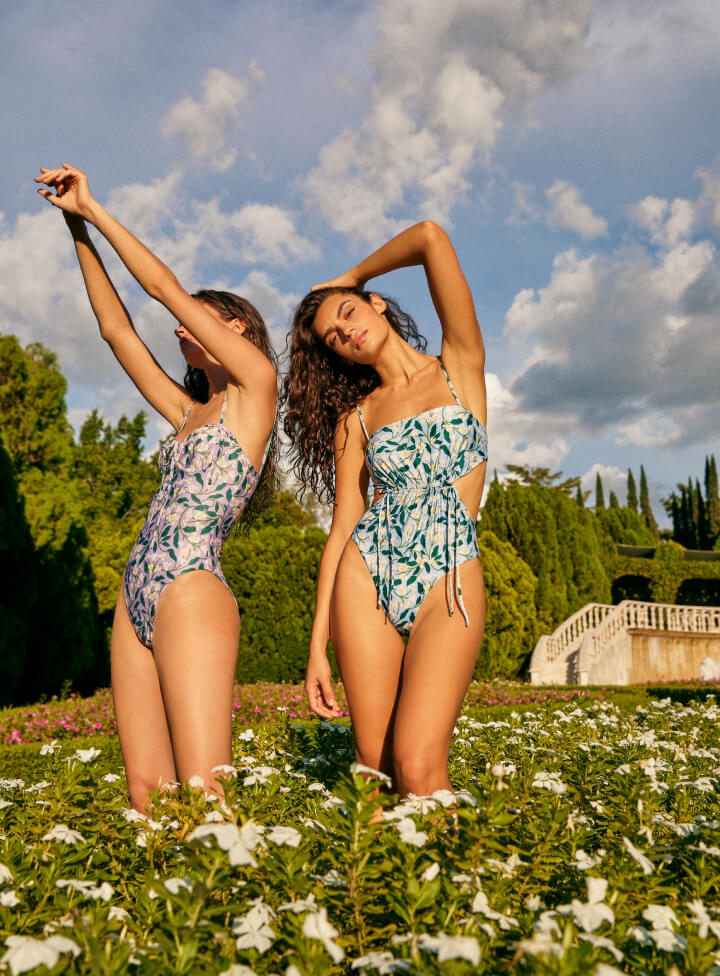
AGUA BY AGUA BENDITA
Not many brands in the business of making beautiful women’s clothes can say that their bathing suits are made
entirely of reclaimed polyester that was once a bunch of PET bottles. But back to those beautiful clothes:
They’re made exclusively of natural fibers (silk, cotton, linen), and the technique used to achieve the
incredibly intricate prints is entirely digital, dramatically reducing the environmental impact of production.
ON MODEL:
Agua by Agua Bendita Ébano Lila One-Piece Swimsuit, Agua by Agua Bendita, $270;
Agua by Agua Bendita Azul One-Piece Swimsuit, Agua by Agua Bendita, $270;
OFF MODEL:
AGUA BY AGUA BENDITA Chan Chan Miel Flor Minidress, goop, $440

CHLOÉ
Of the major Parisian maisons, Chloé is the first to achieve B Corp certification and has taken major
steps—no, leaps!—toward its goal of reducing production-related greenhouse gas emissions and water consumption
by 25 percent by 2025. And the brand did extensive research into sourcing, determining that its biggest
footprint is left by raw materials. Which is why it’s committed to switching to 90 percent lower-impact
materials by 2025. Take the Nama sneaker: 40 percent of its weight is recycled material.
ON MODEL:
Chloé dress, Chloé, $10,595;
OFF MODEL:
Chloé nama sneakers, Net-a-Porter, $725

OLD STONE TRADE
Throughout a decades-long career working at fashion and luxury travel magazines, Melissa Ventosa Martin has
met extraordinary craftspeople from every corner of the globe. Her newest gig, Old Stone Trade, connects these
artisans and makers to clients, offering heirloom-quality wardrobe staples: the perfect cable-knit sweater,
classic black loafers, an everyday coat—all handmade to order to avoid overproduction.
Visit Old Stone Trade to see the Collection and place your order.
New and Noteworthy Materials

FINE MYCELIUM
Last year, Hermès announced a (somewhat surprising) collaboration with MycoWorks, a biotech start-up that
turns mycelium—the densely interwoven root structure of mushrooms—into a plant-based material that mimics the
feel, strength, and durability of real leather. The result? An eco-minded version of the brand’s Victoria
handbag.

WOOL
Wool is a natural, renewable fiber that’s prized for its softness, warmth, and secondhand value. But not all
wool is the same—did you know there are over 1,000 breeds of sheep?—which is why we look to the Woolmark Company for
guidance (it recommends Australian merino).
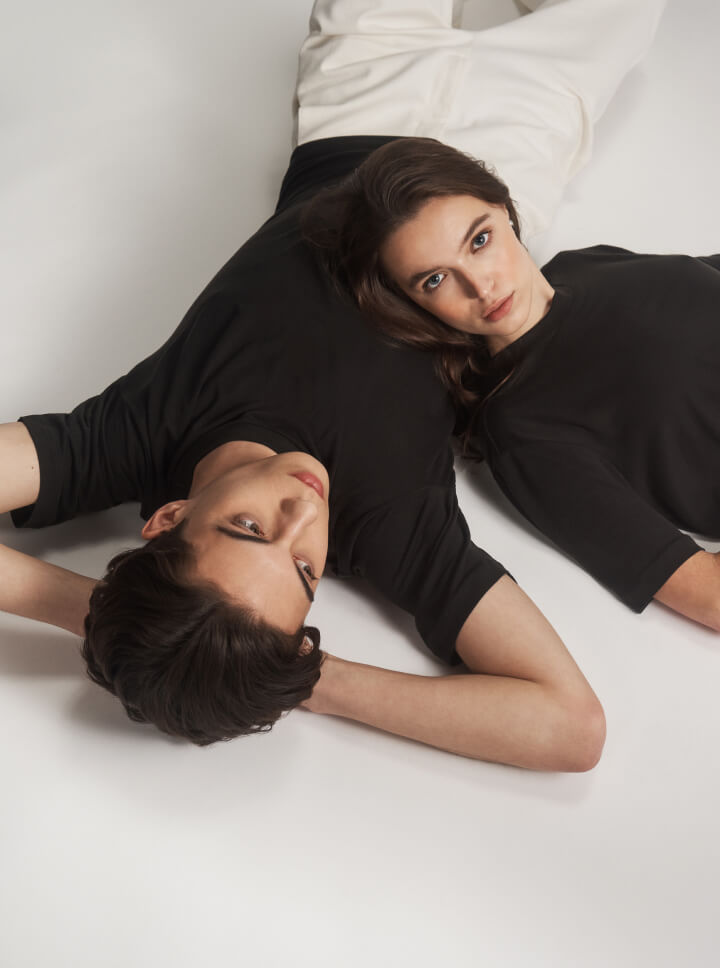
NUCYCL
Textile-innovation company Evrnu has developed technology (dubbed NuCycl) that converts old clothing into
entirely new, high-quality fibers, extending the life of those materials. It recently unveiled its first
commercial product in partnership with designer Carlos Campos: a classic
tee made entirely of post-consumer cotton.
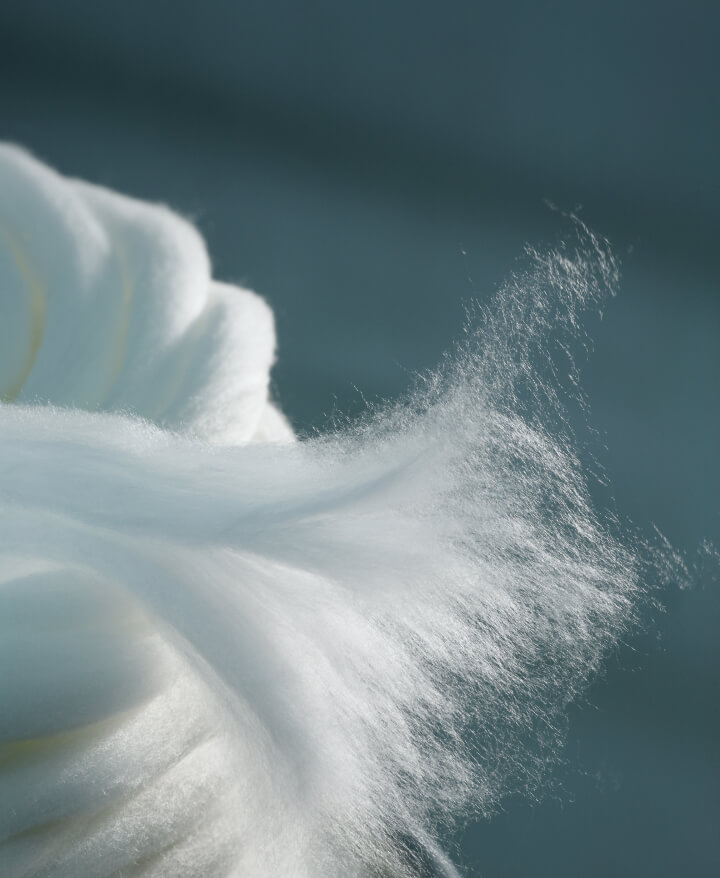
TENCEL
Made of wood pulp sourced from sustainably managed forests, this biodegradable fabric is produced in a
closed-loop process that recycles water and reuses more than 99 percent of its solvents. TENCEL performs
similarly to polyester, breathes like cotton, and has the smooth-on-skin feel of silk.
Related Reading
We hope you enjoy the products recommended here. Our goal is to suggest only things we love and think you might, as well. We also like transparency, so, full disclosure: We may collect a share of sales or other compensation if you purchase through the external links on this page.


